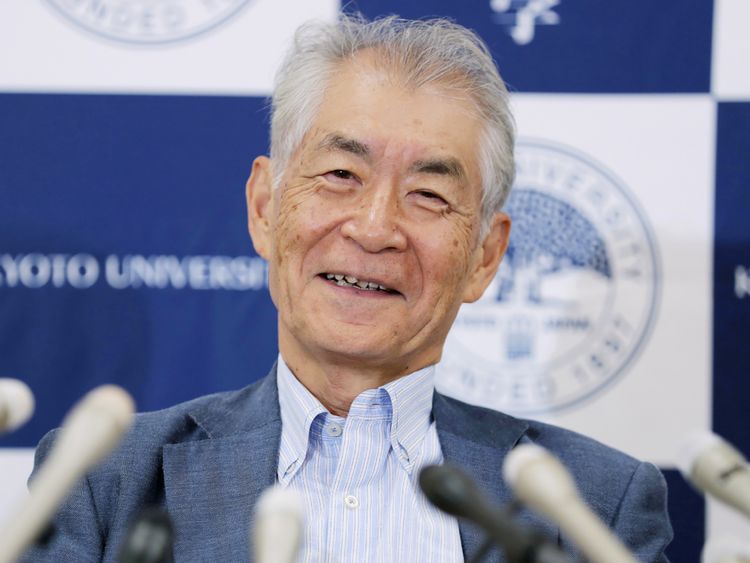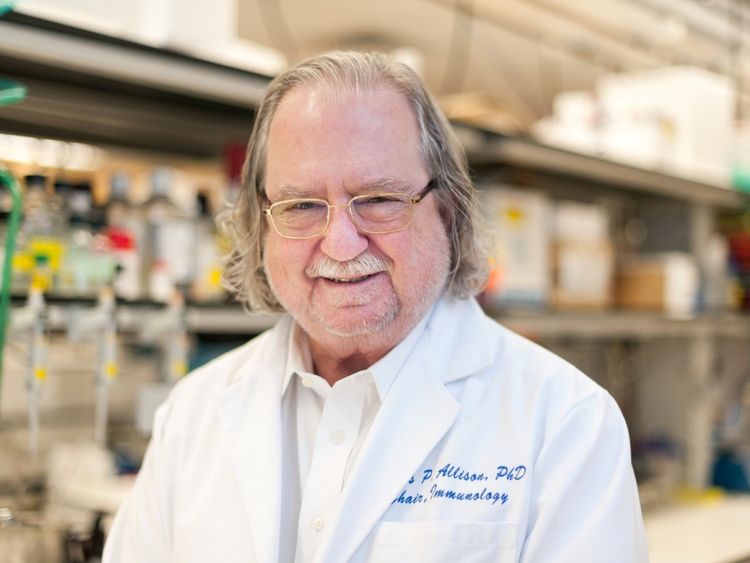Two scientists have been jointly awarded the Nobel Prize for medicine for "landmark" research into how the body's natural defences can fight cancer.
James Allison, from the University of Texas, and Tasuku Honjo, from Japan's Kyoto University, worked in parallel as they tried to stimulate the immune system's ability to attack tumours.
Dr Allison looked at a protein that acts as a brake on the immune system.
Separately, Prof Honjo discovered a new protein on immune cells, finding that that too acts as a brake.
They will share prize money of 9m Swedish kronor (£776,000).
Their work constitutes a "landmark in our fight against cancer", said the Nobel Assembly of the Karolinska Institute, which awarded the prize.
The institute added that therapies based on Prof Honjo's discovery "proved to be strikingly effective in the fight against cancer".
Among those to have received such treatment is former US president Jimmy Carter, who was diagnosed in 2015 with the skin cancer melanoma, which had spread to his brain.
In 2016, after being treated with a drug inspired by Prof Honjo's research, he announced that he no longer needed treatment.

Prof Honjo said the award came "completely out of the blue" and "of course, I was very happy, delighted at the same time, but shocked".
He told reporters he has feelings of "immense joy" when people tell him they have recovered because of his work.
A member of his golf club approached him and thanked him for his efforts, he said.
"I had lung cancer," the member was quoted as saying, "and thought I was playing my last round of golf. But now I am able to play golf again."
Prof Honjo wants to continue his research, "so that this immune therapy will save more cancer patients than ever".

Dr Allison, 70, said he was "honoured and humbled to receive this prestigious recognition".
More from World
"It's a great, emotional privilege to meet cancer patients who've been successfully treated with immune checkpoint blockade," he added.
"They are living proof of the power of basic science, of following our urge to learn and to understand how things work."
[contf] [contfnew] 
Sky News
[contfnewc] [contfnewc]







